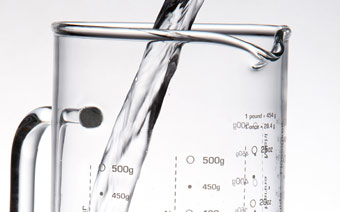EXPLANATION OF TESTS

EXPLANATION OF Diesel Fuel Report
Fuel has more of an effect on your engine than just creating power. Typically fuel is your largest expense. Below is a description of the most common tests requested. Other fuel tests are available upon request. Please call the number on the bottom of this sheet for more complete information.
- Cetane: Measurement of the ignition quality of diesel fuels. The higher the Cetane reading the better the ignition quality. Cetane quality can be improved through the use of additives.
- Sulfur % by Weight: Measures the sulfur content that has not been refined out of the product.
- API Gravity: Measures the density of fuel. API also relates to the energy content (BTU’s) of the fuel. Generally the lower the number the more powerful the fuel is.
- Cloud Point: The temperature at which wax, that is naturally present in diesel fuels, begins to form visible crystals. The crystals can plug fuel filters and lead to engine stalling.
- Pour Point: The temperature at which the fuel ceases to flow for 5 seconds when set in a horizontal position.
- Bacteria/Fungi: These are micro-organisms that feed on hydrocarbons. They need only trace amounts of minerals and water to sustain growth. Left unchecked, it will plug fuel lines, filters and can cause corrosion in fuel storage and delivery systems. This problem can be prevented by maintaining a clean, dry fuel storage system and can be treated with additives that kill the bacteria/fungi.
- Water & Sediment: The measurement of the total amount of water and debris contained in a sample. This is used to evaluate the relative cleanliness of the fuel.
- Flash Point: Temperature at which fuel vapors can be ignited when exposed to a flame. Customers suspecting gasoline contamination in their diesel fuel would want this test. Important for legal requirements and safety precautions pertaining to fuel handling and storage.
- Cold Filter Plug Point: Temperature at which a filter will start to clog with the wax crystals in the fuel.
This analysis is intended as an aid in predicting mechanical wear. No Guarantee, expressed or implied, is made against failure of this component.
For additional information and specific interpretation contact the lab at 1-800-848-4826.
